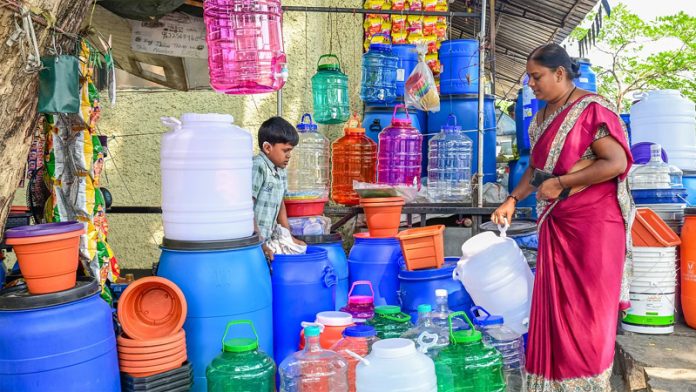Stakeholders in the Nigeria’s extractive industry are calling for improved transparency and fiscal accountability to reposition the sector. In Abuja, on Wednesday, at the multi-stakeholder roundtable organized by Global Rights with the theme “Promoting Transparency, Fiscal Accountability, and National Development in Nigeria’s Extractive Industry Governance,” Dr. Orji Ogbonnaya Orji, the Executive Secretary of the Nigeria Extractive Industries Transparency Initiative (NEITI), called for greater inclusion of women in the minerals and mining value chain.
He made this appeal during his opening remarks in Abuja on Wednesday. The was organized by Global Rights in partnership with NEITI, the Ford Foundation, and the Ministry of Solid Minerals Development. “At the core of our Roundtable discussions are two key issues: fiscal justice and inclusion.

These issues are crucial to our agenda and are integral components of the ongoing reforms in the Solid Minerals Sector.” he said. “For us at NEITI, it is imperative that our partner, Global Rights, places greater emphasis on gender equity and inclusion, particularly focusing on women’s inclusion.
Globally, the participation of women in the mining and steel sectors has sparked significant debate and advocacy. This is due to the negative consequences of a male-dominated extractive industry, which limits women’s access to employment opportunities, training, skill acquisition, investments, and involvement in managing natural resource endowments.” He stated that the event provided an opportunity to examine various man-made obstacles hindering women’s participation in the extractive sector.
He identified several key challenges, including issues of fiscal justice, physical demands, safety concerns, cultural biases, and social abuses. He also emphasized the need for developing new standards that would mandate the inclusion of fiscal justice and gender equality in decision-making processes. These standards should prioritize policy reforms that ensure the public disclosure of data highlighting the specific social, economic, cultural, and environmental challenges faced by women and children in communities hosting oil, gas, and mining operations.
Dr. Orji revealed that the latest audit by NEITI in the oil, gas, and mining sectors shows that employment opportunities for women in Nigeria are significantly below the global average. According to the report, 56 out of 70 companies surveyed employed a total of 19,171 people.
Of these, 15,639 (82%) were men, while only 3,532 (18%) were women. “Similarly, out of 2,325 top or high-level positions, women held less than 100,” he stated. He added that to address this disparity, NEITI is collaborating with global development partners, 57 EITI member countries, the media, and civil society.
Their joint commitment aims to advance fiscal justice and gender equity in the extractive industries, with a specific focus on enhancing women’s participation in natural resource governance. “NEITI has established a Women/Gender Desk to coordinate activities aimed at highlighting issues affecting women and children in the public consciousness,” he stated. He added that NEITI would support strategies developed at the conference to advance women’s inclusion.
” Speaking earlier, the Executive Director of Global Rights, Abiodun Baiyewu, expressed optimism that the meeting would foster dynamic and enduring partnerships. These partnerships, she noted, are essential for encouraging higher levels of participatory governance necessary to build stronger fiscal regimes According to her, “Despite having over 40 minerals available in commercial quantities throughout the country, the solid mineral sector paradoxically contributes less than 1% to the national GDP. Furthermore, more than 80% of this sector, particularly artisanal mining, remains unregulated, with its revenue unaccounted for.
“Mining host communities disproportionately suffer from the resource curse, gaining little to no benefit from the wealth extracted from their surroundings. Amid the boom in the hydrocarbon sector and a faltering economy, the Nigerian government has turned its economic focus towards minerals and mining, recognizing their inherent potential. “Our aim for this dialogue is to reach a mutual agreement on the most effective ways for civil society to engage with NEITI and the National Assembly to enhance transparency and accountability in the solid mineral sector.
We also seek to promote the rights of mining host communities and advance Nigeria’s implementation of the African Mining Vision (AMV) and the ECOWAS Mining Directive. The outcomes of our discussions will be made public to ensure broader awareness and involvement in achieving our shared goals.” Also speaking, HRH Oba Omololu Afilaka, the Alatorin of Atorin Ijesa, said that the rising demand for natural resources and their limited supply has turned them into essential and sought-after commodities in the international market.
Countries managing these resources prudently have seen increased national income and improved economies, transforming their GDPs and making them a focus for others globally. “Nigeria has the potential to be the true giant of Africa not just in population or might but in economic measures like Gross Domestic Product (GDP), Gross National Product (GNP), and Gross National Income (GNI). Mother Earth has endowed Nigeria with resources that could reduce poverty, spur economic development, and elevate our economy to enviable standards.
Every part of Nigeria boasts some form of natural resource, from the oceanography of our extended continental shelf to solid minerals and natural gas. He noted that, a comprehensive look at Nigeria’s mineral map from Abia to Zamfara reveals abundant natural resources, mostly in commercial quantities. For example, Akwa Ibom has specific resources, Kaduna has specific resources, and Bauchi has specific resources.
“Given our natural wealth, we must ask questios like: Have these resources been prudently and equitably managed? Has the revenue from these resources mitigated inequalities in Nigerian society? He said, “From my perspective as a community leader, I see the good, the bad, and the ugly of our mineral resource abundance. “Opportunities arise for rural dwellers to improve their lives buying vehicles, affording luxuries like palm wine, and benefitting from promises of boreholes, school renovations, and health center improvements by mining companies. These companies often include such projects in their Community Development Agreements (CDAs), required by the Mining Act 2007.
“From my perspective as a community leader, I see the good, the bad, and the ugly of our mineral resource abundance: The Good: Opportunities arise for rural dwellers to improve their lives—buying vehicles, affording luxuries like palm wine, and benefitting from promises of boreholes, school renovations, and health center improvements by mining companies. These companies often include such projects in their Community Development Agreements (CDAs), required by the Mining Act 2007. He again noted that, Insecurity, banditry, and terrorism have increased, driven by the scramble for the country’s resources, “This has led to displacement, the rise of internally displaced persons (IDP) camps, and tragedies reminiscent of Sierra Leone’s and Liberia’s “blood diamonds.
” He said, Environmental degradation is rampant. Rivers and streams are polluted, sacred shrines destroyed, and host communities left impoverished. Illegal but licensed mining is a prevalent issue, with environmental impact assessments (EIAs) often rapidly produced and approved by compromised engineers.
The Royal Highness, in conclusion said the government must take concrete steps to manage Nigerian’s resources better, reduce dependency on foreign economies, and foster patriotism, equity, and respect for the nation. By doing so, we can harness our resources for the prosperity of all Nigerians, ensuring that the wealth of our land benefits everyone, not just a privileged few..



















